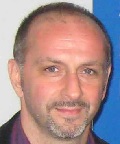 |
Nicola Barbuti è ricercatore universitario presso l’Università degli Studi di Bari Aldo Moro nel SSD M-STO/08, Archivistica, Bibliografia e Biblioteconomia. Si è laureato in Storia Romana presso l’Ateneo barese e ha conseguito il Dottorato di Ricerca in Storia Antica nella medesima sede. Ha conseguito il Master Universitario di II livello in Studi sul libro antico e ha Ha conseguito il diploma in Archivistica, Paleografia e Diplomatica presso l’omonima Scuola dell’Archivio di Stato di Bari. Dal 2005 svolge vari insegnamenti nelle Facoltà di Scienze della Formazione e di Lettere e Filosofia di Bari e di Matera, sede decentrata dell’Università della Basilicata. I suoi interessi di ricerca sono: teorie e tecniche della catalogazione con specifico riferimento al libro antico a stampa; aspetti storici e bibliologici dell’editoria antica e moderna; innovazione tecnologica applicata ai beni culturali, con particolare attenzione ai beni librari, archivistici, museali e storico artistici; fonti archivistiche per la storiografia moderna e contemporanea. |
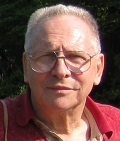 |
Vittore Casarosa graduated in Electrical Engineering at the University of Pisa and after a few years spent at a center just established in Pisa by the Italian National Research Council to do research on “Electronic Computers” (that center is today ISTI, the Institute for Science and Technology in Informatics), he has spent many years in the R&D laboratories of IBM in Italy, France and in the US, doing and managing research mostly in image processing and networking. Since 2000 he is Senior Research Associate of the Italian National Research Council at ISTI, where he is associated with the activities of the Multimedia Laboratory in the field of Digital Libraries; from 2000 to 2007 he has been Deputy Director of DELOS, the Network of Excellence on Digital Libraries. Vittore has held teaching assignments at the University of Pisa (Department of Engineering) and at the Open University of Bolzano (department of Computer Science). Presently he is teaching courses on Digital Libraries at the University of Pisa (department of Digital Humanities). |
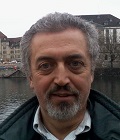 |
Augusto Ciuffoletti graduated in Computer Science in 1980 with a thesis on distributed fault-tolerant systems. Since 1988 he has been a researcher at the Department of Computer Science at the University of Pisa, where he is currently teaching computer networks at the Course of Studies in Digital Humanities. He is presently collaborating with the Open Cloud Computing Interface (OCCI) working group of the OGF, and he is an academic member of the Distributed Management Task Force (DMTF). In 2016 he was a Guest Lecturer at the Cloud Computing Summer School at the ZHAW in Zurich. He has been associated with the Italian Institute of Nuclear Physics (INFN-CNAF, Bologna) from 2001 to 2010 for Grid and Cloud related projects (DataGrid, CoreGrid, OGF Europe). He has been a visiting scientist at the International Computer Science Institute in Berkeley, at the University of South Florida, and at the IBM T.J.Watson Center in Yorktown Heights. His research interests focus on the design principles and the monitoring of distributed infrastructures. Go to Web site |
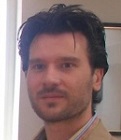 |
Angelo Mario del Grosso è ingegnere informatico e collaboratore per attività di ricerca presso l’Istituto di Linguistica Computazionale “A. Zampolli” di Pisa. Ha conseguito nel 2015 il dottorato di ricerca in ingegneria dell’informazione discutendo una tesi dal titolo “Designing a Library of Components for Textual Scholarship” presso l’Università di Pisa. Dal 2010 è attivamente coinvolto in vari progetti di Digital Humanities sia nazionali come il PRIN “Per un’edizione digitale dei manoscritti di Ferdinand de Saussure” – coordinato dal prof. Daniele Gambarara – e come il progetto “Clavius on the Web” – finanziato dal Registro.it -, sia iniziative internazionali come l’ERC Ideas, Advanced Grant 249431 “Greek into Arabic: Philosophical Concepts and Linguistic Bridges” – coordinato dalla prof.ssa Cristina D’Ancona. I suoi principali interessi di ricerca comprendono: l’analisi, la progettazione e lo sviluppo di applicazioni software per il textual scholarship attraverso approcci propri dell’Object-Oriented e del Web Semantico. La modellazione di “tipi di dati astratti di dominio” (DS-ADT) che connotino i requisiti specifici dello studio scientifico di risorse testuali, con particolare attenzione agli aspetti linguistico-filologici di testi antichi, di tradizione medievale, a stampa, nonché di autori moderni e contemporanei. Go to Web site |
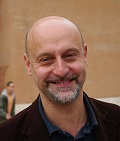 |
Pierluigi Feliciati è ricercatore di Scienze dell’informazione presso l’Università di Macerata dal 2007 e dal 1986 è stato in servizio presso il Ministero per i beni culturali, prima presso l’Archivio di Stato di Parma poi nell’Istituto Centrale per gli Archivi, tra l’altro coordinando il portale web e il Sistema Informativo degli Archivi di Stato. Attualmente è delegato rettorale al Sistema Informativo d’Ateneo, presidente della spin-off company PlayMarche srl e professore aggregato di Scienze dell’informazione applicate agli archivi, ai beni culturali e alle digital humanities, presso l’ateneo maceratese e presso diversi Master nazionali e internazionali. Insegna da 8 anni al Master in Formazione, Gestione e Conservazione degli archivi digitali in ambito pubblico e privato. E’ stato direttore nel 2013 della Summer School in Access to Digital Archives internazionale ed è autore di numerose pubblicazioni sui temi della qualità d’uso degli ambienti documentari digitali. Go to Web site |
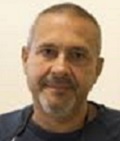 |
Giuliano Kraft started his career in 1976 with a scholarship at the CNR Institute for Clinical Physiology, working on the technology of the pacemakers, then at their dawn. From 1980 to 2002 Giuliano was involved in the development and testing of medical software, in cooperation with the Ministry of Health, becoming responsible of the National Registry of Hearth Transplants. At the same time he was working at the Hearth Hospital of Massa, specialized in hearth surgery, being responsible for its technical facilities. Since 2002, he works at the CNR Institute for Informatics and Telematics, where in 2008 he established the WebTV for the whole CNR Research Area in Pisa, which shortly became the WebTV for the whole CNR. Since then he has realized a number of short films for scientific dissemination and has been responsible for the real time streaming of over 100 scientific events. |
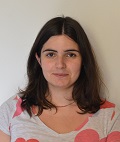 |
Chiara Mannari Chiara Mannari has a master’s degree in Digital Humanities at the University of Pisa. She is a freelance web designer and developer and collaborator of the Laboratory of Digital Culture of the University of Pisa, where she works on the development of websites in the field of digital humanities and international projects. She specializes in the platform WordPress and periodically she gives workshops and courses for the introduction and the use of the software in academic context. |
 |
Roberto Rosselli Del Turco is an Assistant Professor at the Università degli studi di Torino, where he teaches Germanic Philology, and also an Assistant Professor of Digital Humanities at the University of Pisa. He is the editor of the Digital Vercelli Book (http://vbd.humnet.unipi.it/), an ongoing project that aims at providing a full edition of this important manuscript. To further the DVB project he created Edition Visualization Technology (EVT), a software tool to navigate and visualize digital editions developed at the University of Pisa (http://evt.labcd.unipi.it/). Roberto is also co-director of the Visionary Cross project (http://www.visionarycross.org/), an international project aiming at producing an advanced multimedia edition of key Anglo-Saxon texts and monuments. |
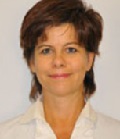 |
Enrica Salvatori graduated in Medieval History at the University of Pisa, Ph.D. in Medieval History at the University of Milan; associate professor in Medieval History at the University of Pisa since 2006, where she teaches Medieval History and Digital Public History; visiting professor at the University P. Valéry (Montpellier, France) in 2006, 2008, 2011 and 2015. Since 2015 she is the Director of the Laboratorio di Cultura Digitale (LabCD, Digital Culture Laboratory). She is in the board of: Società Storica Pisana, Associazione Italiana per l’Informatica Umanistica e la Cultura Digitale (AIUCD), OpenEdition Italia, Associazione Italiana di Public History (AIPH); Editorial board: Umanistica Digitale; Annales du Midi. President of Società Storica Spezzina; P.I. of Codice Pelavicino Edizione Digitale project (http://pelavicino.labcd.unipi.it/). Fields of research: Medieval Mediterranean Circulation, Evolution of the Municipality in Italy and Provence, History of Lunigiana, Digital Public History. |
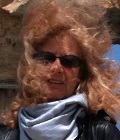 |
Nicoletta Salvatori graduated in Pisa in Philosophy of Science. Since 1985 she is a professional journalist, member of the Ugis (association of Italian scientific journalists). She was editor in chief of the monthly naturalistic magazine Airone, creator and chief editor of the monthly scientific magazine Quark, editorial chief in Domus Publishing Co. (Tuttoturismo, Meridiani and Meridiani Montagna), editor in Chief of Arte Navale magazine, about yachting and seafaring culture. She is editor in chief of Umanistica Digitale, the journal of the Italian Association of Digital Humanities (AIUCD – Associazione per l’Informatica Umanistica e la Cultura Digitale). Nicoletta has written several books and ebooks. She works as an editorial consultant at the communication agency Hole in One in Milano, and at the Simonelli electronic publishing Co. She teaches editing, new media and communication at the University of Pisa (Informatica Umanistica). |
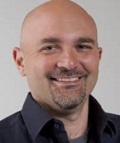 |
Luigi Siciliano has a master Degree and a PhD in Medieval History at the University of Florence, and later on he also graduated in Cultural Heritage at the University of Trento. During his studies he developed databases and applied markup technologies for the encoding of medieval sources, and also realized websites in the DH domain. He currently works as Systems Librarian at the Library of the Free University of Bozen-Bolzano, where he manages the discovery tool and the library information system, with a special focus on metadata management, and works in the team for the Online Services and Resources. He has been teaching assistant for Digital Libraries courses and is involved in education activities for librarians. |
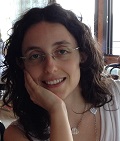 |
Rachele Sprugnoli got the bachelor and master degree in Humanities Computing at the University of Pisa and completed her PhD in “Information Technology” at the University of Trento with a thesis on event detection and classification for the digital humanities. Her research is focused on how computational methods and technologies can be applied to the treatment of cultural content, in particular of historical texts. Other research interests are: creation of linguistic resources, semantic annotation of texts, automatic processing of temporal information. Currently she is a postdoctoral researcher at Università Cattolica del Sacro Cuore in Milan, working in the ERC project “LiLa: Linking Latin” Go to Web site |

